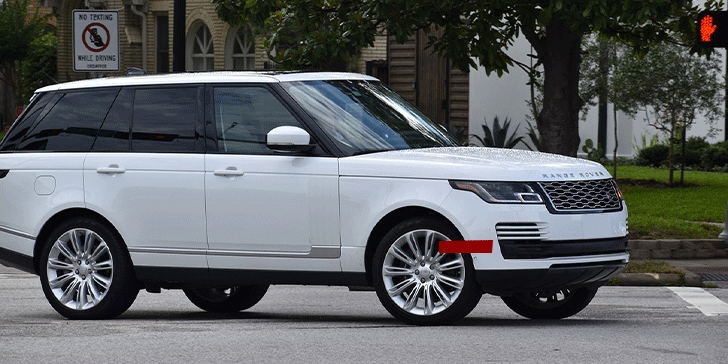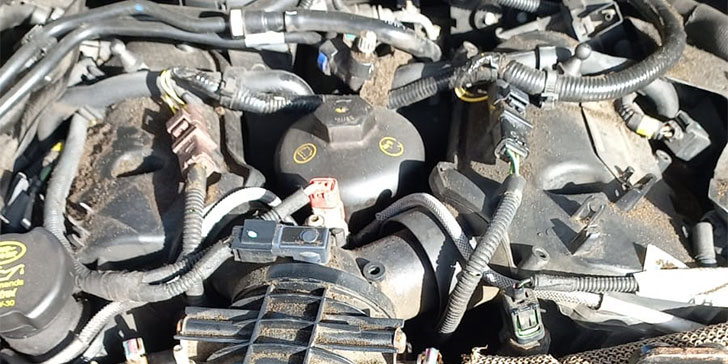
Luxury SUVs frequently come under criticism in today's society because environmental awareness and the goal of fuel efficiency are of paramount significance. These cars, according to their detractors, use enormous amounts of fuel and produce carbon emissions. The Range Rover Sport Engine from Land Rover, however, is a game-changer in this regard, creating a new benchmark for eco-friendliness and efficiency in the world of luxury SUVs.
The Range Rover Sport Engine is not just a driving force but also an expert at conserving fuel thanks to its exceptional engineering, cutting-edge technology, and dedication to sustainability. In this article, we'll examine the innovative design elements and cutting-edge technologies that enable the Range Rover Sport Engine to operate as efficiently as possible while still delivering the luxury and performance you expect.
The Heart of Efficiency: Range Rover Sport's Engine
The engine is at the heart of any vehicle's efficiency, and the Range Rover Sport does not disappoint. The Range Rover Sport Engine lineup features several alternatives to fit your preferences and demands, all of which are designed to be efficient.
Ingenium Engines
At the forefront of Range Rover Sport's efficiency is the Ingenium engine family. These cutting-edge powerplants are a testament to Land Rover's commitment to sustainability and environmental responsibility. Ingenium engines are designed from the ground up to deliver superior fuel efficiency without compromising on performance.
These engines feature innovative technologies like direct fuel injection, variable valve timing, and lightweight materials to reduce internal friction and maximize energy efficiency. The result is an engine that delivers impressive power while keeping fuel consumption in check.
Mild Hybrid Technology
One of the standout features of the Range Rover Sport Engine lineup is the integration of mild hybrid technology. This system incorporates a small electric motor and a 48-volt lithium-ion battery to assist the engine during acceleration and deceleration.
During acceleration, the electric motor provides an extra boost of power, reducing the load on the internal combustion engine. Conversely, during deceleration, the motor acts as a generator, recovering energy that would otherwise be lost as heat and storing it in the battery for later use.

The mild hybrid system not only improves fuel efficiency but also enhances the vehicle's overall performance. It's a win-win situation for both drivers and the environment.
Efficiency Through Power Management
One of the key ways the Range Rover Sport engine saves you fuel is through its intelligent power management system. This system optimizes power delivery and minimizes energy wastage, resulting in improved fuel efficiency.
Start-Stop Technology
The Range Rover Sport features start-stop technology, which temporarily shuts off the engine when the vehicle comes to a stop, such as at traffic lights or in heavy traffic. This prevents unnecessary idling and reduces fuel consumption. When you release the brake pedal, the engine seamlessly restarts, ensuring you're ready to accelerate without delay.
Regenerative Braking
The mild-hybrid system in the Range Rover Sport includes regenerative braking, which captures energy that would otherwise be lost as heat during braking and converts it into electricity to recharge the 48-volt battery. This recovered energy can then be used to assist the engine, reducing the load on the combustion engine and saving fuel.
Electric Power Assistance
The integrated electric motor in the mild-hybrid system provides additional power during acceleration, which reduces the load on the internal combustion engine. This assistance not only enhances performance but also contributes to fuel savings.
Enhanced Aerodynamics for Fuel Efficiency
Another critical aspect of the Range Rover Sport's efficiency strategy is its aerodynamic design. The sleek and sophisticated exterior isn't just for looks; it's engineered to reduce wind resistance and improve fuel efficiency.
Streamlined Body
The Range Rover Sport's body is designed with a focus on aerodynamics.
Its sleek lines and carefully sculpted features minimize drag, allowing the vehicle to cut through the air more efficiently. This reduces the energy required to maintain speed, ultimately saving fuel.

Active Grille Shutters
To further optimize aerodynamics, some Range Rover Sport models are equipped with active grille shutters. These shutters automatically adjust to control airflow to the engine, cooling system, and other components. By regulating airflow, the vehicle can maintain optimal operating temperatures while minimizing air resistance.
Weight Savings and Fuel Efficiency
Weight plays a crucial role in a vehicle's fuel efficiency. Heavier vehicles require more energy to move, which can lead to higher fuel consumption. Range Rover Sport engineers have taken measures to reduce weight without compromising safety or luxury.
Lightweight Materials
The Range Rover Sport incorporates lightweight materials in its construction, such as aluminium. This choice of materials helps reduce the overall weight of the vehicle, making it more fuel-efficient.
Optimized Chassis
The chassis and suspension components of the Range Rover Sport are carefully engineered to be both lightweight and strong. This not only enhances ride comfort and handling but also contributes to improved fuel efficiency by reducing the vehicle's overall mass.
Advanced Transmission Technology
Efficient power delivery also depends on the transmission system, and the Range Rover Sport does not disappoint in this department.
Smooth-Shifting Transmissions
Range Rover Sport models come with advanced automatic transmissions that provide smooth and precise gear changes. These transmissions are designed to optimize power delivery and ensure that the engine operates in the most efficient RPM range, reducing fuel consumption.
Multiple Drive Modes
Many Range Rover Sport models offer selectable drive modes that allow drivers to tailor the vehicle's performance to their preferences and driving conditions. These modes can adjust throttle response, transmission behaviour, and other factors to maximize fuel efficiency when desired.
Continuous Innovation for Efficiency
Land Rover, the manufacturer of Range Rover vehicles, is committed to continuous innovation and improvement in fuel efficiency. They regularly invest in research and development to stay at the forefront of automotive technology.
Hybrid and Electric Options
In addition to the mild-hybrid technology mentioned earlier, Land Rover is actively exploring hybrid and electric options for its Range Rover lineup. These developments aim to further reduce fuel consumption and emissions, catering to environmentally conscious consumers.
Software Updates
Range Rover Sport owners can benefit from software updates that enhance engine and transmission performance. These updates may include optimizations for improved fuel efficiency, ensuring that your vehicle remains efficient throughout its lifecycle.
The Range Rover Sport's reputation for luxury and performance is well-established, but its commitment to efficiency is equally impressive. With its advanced Ingenium engines, mild-hybrid systems, intelligent power management, aerodynamic design, weight reduction, and advanced transmissions, the Range Rover Sport engine delivers an exceptional driving experience while saving you fuel and reducing your environmental footprint.